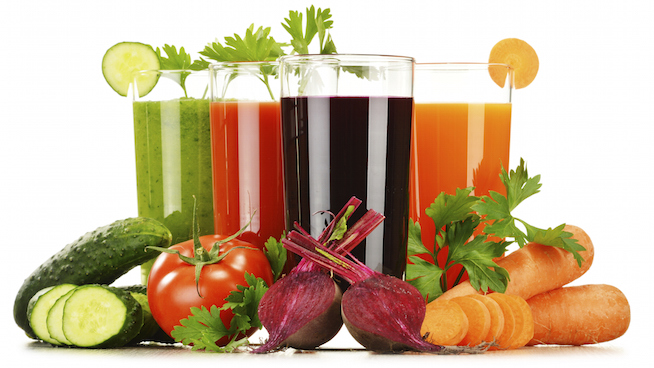What You Need To Know About Juicing
Juicing involves extracting the liquid from fruits and vegetables to create a nutrient-rich beverage. It can be a convenient way to increase your intake of essential vitamins and minerals. This popular trend has staying power with many people swearing by its health-boosting properties. But like any nutritional endeavor, it’s essential to understand the pros and cons. If you’re interested in juicing, you can learn everything you need to know about it with an online search.

What Is Juicing?
Juicing is the process of extracting liquids from fruits and vegetables, leaving behind the pulp.1 It’s a method that’s gained popularity for its ability to pack a lot of nutrients in a single glass. People often turn to juicing to increase their consumption of fruits and vegetables, especially when they find it challenging to eat the recommended daily servings. While juicing offers a convenient way to consume a variety of produce, it’s important to note that it’s not a replacement for whole fruits and vegetables.
The Pros and Cons of Juicing
It’s essential to look at both sides of juicing to understand the full picture.
Benefits:
- Juicing provides an easy way to increase your intake of fruits and vegetables, essential for maintaining good health.2
- It enables easy nutrient absorption since the process of juicing breaks down the cell walls of fruits and vegetables.
- Certain ingredients used in juicing can support the body’s natural detoxification processes.3
- Juicing may contribute to weight loss when integrated into a balanced diet and exercise routine.
- The high liquid content of juices can aid in hydration, helping to meet your daily fluid intake needs.
Drawbacks:
- Juicing removes some of the fiber from fruits and vegetables, which is crucial for digestion and overall health.
- It’s not a miracle weight loss solution and should be used as part of a balanced diet and exercise routine.
Considering these aspects, it becomes clear that juicing should be practiced with a balanced and mindful approach.
Increased Intake of Fruits and Vegetables
Juicing makes it incredibly simple to consume the recommended servings of fruits and vegetables. This is particularly beneficial for those who may not have the time or inclination to eat a lot of whole produce. A diet rich in fruits and vegetables is linked to overall better health.4 By incorporating juicing into your routine, you can give your body a nutrient-rich boost that can contribute to improved well-being.
Easy Nutrient Absorption
The process of juicing breaks down the cell walls of fruits and vegetables, making the nutrients more accessible and easier to absorb. This can be especially beneficial for individuals with certain digestive issues, as it allows them to receive the nutrients they need without the digestive distress that can come from eating whole produce. Juicing offers a digestive shortcut, helping your body get the nourishment it requires.
Support for Detoxification
Our bodies are constantly working to detoxify and eliminate toxins, and certain ingredients used in juicing can support this natural process. Ingredients like cilantro, lemon, and ginger are known for their detoxifying properties.5 Including these in your juices can give your body an extra helping hand, ensuring you’re doing everything you can to maintain optimal health.
Weight Loss Support
While juicing should not be viewed as a magic weight loss solution, it can be a valuable addition to a balanced diet and exercise routine. Juicing provides a low-calorie option for those looking to reduce their caloric intake. However, it’s essential to approach juicing with balance and ensure you are not solely relying on juices for nutrition.
Enhanced Hydration
Staying well-hydrated is crucial for overall health, and juicing can contribute to your daily fluid intake. Many people struggle to drink the recommended amount of water each day, and incorporating fresh juices can be a tasty and nutritious way to stay hydrated.
Types of Juicers
When it comes to juicing, not all juicers are created equal. There are several types to choose from, each with its own set of advantages and disadvantages.6
- Centrifugal juicers: Popular due to their speed and affordability
- Masticating juicers: Operate at a slower speed, preserving more nutrients
- Triturating juicers: High juice yield and nutrient preservation
Each type of juicer has its own set of features, so the best one for you depends on your specific needs and preferences.
The Bottom Line
Whether you’re looking to boost your nutrient intake, support your body’s natural detoxification process, or simply enjoy a refreshing drink, juicing has something to offer. However, it’s important to approach juicing with balance and mindfulness, ensuring you’re also getting enough fiber and not viewing it as a one-stop solution for weight loss. Reach out to a doctor before making significant changes to your diet. With the right approach, juicing can be a valuable addition to a balanced and healthy lifestyle.
